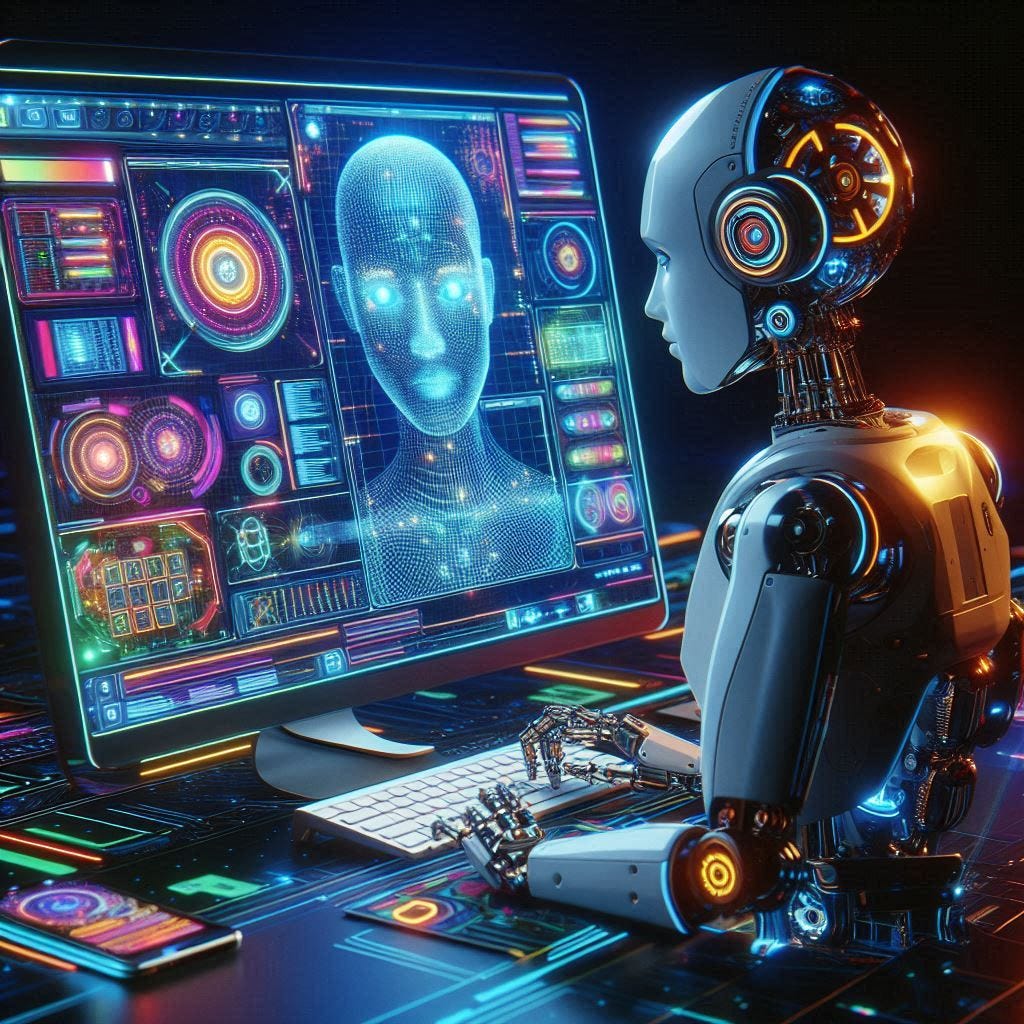Artificial Intelligence (AI) is changing many industries, and web development is no exception. From automating tasks to creating personalized user experiences, AI is revolutionizing how we build and interact with websites. This blog will explore how AI is transforming web development, focusing on areas like code writing, front-end design, backend optimization, and quality assurance.

1. AI-Powered Code Completion and Debugging
Writing and debugging code can be time-consuming, but AI tools are here to help. One popular tool, GitHub Copilot, uses AI to understand the context of your code and suggests helpful code snippets. This speeds up the coding process and helps catch errors.
Key Benefits:
- Faster Development: AI tools can predict what you’re trying to code and suggest it for you.
- Fewer Errors: These tools can spot mistakes and offer fixes as you code.
- Learning Partner: For beginners, AI tools provide guidance and help them learn best practices.
These tools free up developers to focus on more complex tasks, leaving routine coding to AI.
2. AI in Front-End Design and UX/UI Customization
The front end of a website is all about user interaction, and AI is making it better by offering personalized and intuitive experiences.
Examples of AI in Front-End Design:
- Personalization: AI can learn user preferences and adjust the content and layout of a website accordingly. For example, e-commerce sites can show product suggestions based on what a user has previously viewed.
- Design Automation: Tools like Figma use AI to suggest design improvements, adjust layouts, and create design elements automatically.
- Chatbots and Voice Interfaces: AI-driven chatbots can answer questions and provide support, making websites more interactive and helpful.
With AI, developers can build websites that are not only more engaging but also adapt to each user’s needs.
3. Machine Learning for Backend Optimization
While the front end is crucial for user interaction, the backend is where data processing and server management happen. AI and machine learning optimize these processes, making web applications faster and more secure.
Applications in Backend Optimization:
- Load Balancing: AI predicts traffic and adjusts server loads to keep websites running smoothly.
- Data Processing: AI can handle and analyze large amounts of data quickly, providing faster and more insightful results.
- Security: AI detects unusual activities and potential threats, helping to keep websites secure.
These improvements ensure that web applications can handle more traffic and perform efficiently.
4. AI-Driven Testing and Quality Assurance
Quality assurance (QA) is vital in web development to make sure everything works perfectly. AI enhances QA by automating testing, making it faster and more effective.
How AI is Enhancing QA:
- Automated Testing: AI can run many tests quickly, identifying bugs and suggesting fixes.
- Regression Testing: AI checks that new changes don’t break existing features.
- Performance Monitoring: AI keeps an eye on how well a website is performing and alerts developers to any issues.
Using AI in QA helps deliver high-quality web applications with fewer bugs.
Conclusion
AI is not just a buzzword in web development; it’s a game-changer. From writing code to optimizing backend performance and personalizing user experiences, AI makes web development faster, smarter, and more efficient. As AI continues to grow, it will bring even more innovative changes to how we develop websites.
By embracing AI, developers can create more adaptive and user-friendly websites. Whether you’re new to web development or a seasoned pro, understanding and using AI tools will help you stay ahead in this rapidly evolving field.






0 Comments